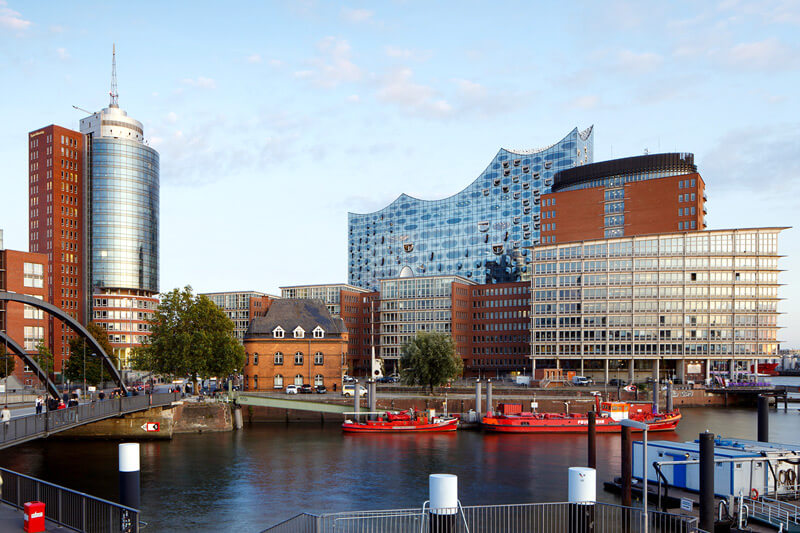Die Plattform für live virtuelle hybride alle Events.
Teilnehmermanagement für alle Arten von Veranstaltungen. Mit der vollen Kontrolle über die Kontaktpunkte und Daten Ihrer Teilnehmer.
Wir verhelfen Unternehmen aller Branchen und Größen zu einem erstklassigen Eventmarketing.
Invitario Kernfunktionen, die Ihre Arbeit erleichtern und Teilnehmer begeistern.
Einladen und registrieren
Organisieren Sie Kontakte in smarten Verteilern, laden Sie zu Events ein und ermöglichen Sie die einfache und schnelle Registrierung.
Eventkommunikation
Sprechen Sie Ihre Kontakte mit personalisierten Inhalten direkt an und gestalten Sie beeindruckende E-Mails und Event-Websites in Ihrem Design.
Covid-19-Prävention
Für Live-Events bieten wir spezielle Funktionen, die Ihre Teilnehmer und Mitarbeiter schützen und Ihnen helfen behördliche Auflagen zu erfüllen.
Daten und Statistiken
Mit aussagekräftigen Statistiken und Daten über Ihre Teilnehmer bleiben Sie in Echtzeit über die Entwicklung Ihrer Veranstaltungen informiert.
Datenschutz nach DSGVO
Invitario ist zu 100% DSGVO-konform. Verlassen Sie sich auf unsere ISO-zertifizierte Server-Infrastruktur im Herzen Deutschlands.

„Es ist uns wichtig, die Kommunikation mit unseren Teilnehmern so persönlich wie möglich zu gestalten und jederzeit die Übersicht zu behalten.“
Stephan Göckler, Progroup AG
Intro-Video: Lernen Sie Invitario in 4 Minuten kennen.
Erhalten Sie in wenigen Minuten einen ersten Überblick über die Eventmarketing-Plattform von Invitario.
Live, virtuell & hybrid
Einheitliche Prozesse für alle Veranstaltungen.
Von der Einladung bis zur Teilnahme am Event: Mit Invitario steuern und automatisieren Sie das Teilnehmermanagement aller Events Ihres Unternehmens und bieten Ihren Teilnehmern ein herausragendes Erlebnis.
Nutzen Sie standardisierte Abläufe beim Einladen und Verwalten Ihrer Kontakte, personalisierte Eventkommunikation und einheitliche Daten, um den ROI Ihrer Veranstaltungen zu steigern – unabhängig von Format und Größe einzelner Events.
- NEine Plattform für alle Events Ihres Unternehmens
- NAutomatisieren und steuern Sie Ihr Eventmarketing
- N100 % DSGVO-konform, Infrastruktur in Deutschland
Neue Perspektiven
Nutzen Sie die Daten Ihrer Events für eine 360-Grad-Betrachtung.
Erfassen Sie alle Kontaktpunkte mit jedem Teilnehmer – vor, während und nach den Veranstaltungen. Daraus eröffnen sich neue Möglichkeiten für Ihr Eventmarketing, indem Sie den Erfolg Ihrer Veranstaltungen auf der Basis fundierter Daten bewerten.
Die integrierte Betrachtung Ihrer Eventdaten ermöglicht auf jeden Kontakt abgestimmte Maßnahmen in Marketing und Vertrieb, um das Erlebnis jedes einzelnen Teilnehmers weiter zu verbessern und das Wachstum Ihres Unternehmens zu beschleunigen.
- NEventdaten für das Treffen fundierter Entscheidungen
- NIntegration in Ihre ganzheitliche 360-Grad-Betrachtung
- NMehr Erfolg für Ihr Marketing und Ihren Vertrieb
„Dank Invitario wissen wir jederzeit, wer bereits auf die Einladung reagiert hat. So können wir gezielt bei Kontakten nachfassen, die noch nicht mit einer Zu- oder Absage auf die Einladung reagiert haben.“
Doris Mayr, B&C Privatstiftung

Wir sind mehr als nur Software.
Support
Lassen Sie sich von unseren Produktexperten unterstützen und bei der optimalen Umsetzung Ihres Teilnehmermanagements beraten.
Lernplattform
In unserer Lernplattform finden Sie jederzeit Artikel, Tipps und Videos mit praktischen Schritt-für-Schritt-Anleitungen zu allen Funktionen.
Training
Nutzen Sie unsere Webinare zu Funktionen und mit Best-Practice Beispielen oder vereinbaren Sie individuelle Trainings für Ihr Team.
Mit Invitario auf Erfolgskurs.
Unsere Kunden erzielen beeindruckende Ergebnisse mit ihrem Eventmarketing.

Die internationale Wirtschaftskanzlei Taylor Wessing (1.000 Anwälte, 16 Standorte, 28 Büros) nutzt Invitario für digitale und Live-Events – national sowie auch international.

Die Landesregierung des Bundeslands Vorarlberg (Österreich) hat mit Invitario sein Eventmarketing digitalisiert – pro Jahr werden von 8 Abteilungen über 500 Veranstaltungen umgesetzt.

Der Bundesverband der Deutschen Industrie setzt mit Invitario komplexe Veranstaltungen, wie z. B. den mehrtägigen und hochkarätigen Kongress „Tag der Industrie“, um.
Sie sind interessiert? Lernen Sie uns kennen!
Demo anfragen
Ein Produktexperte stellt Ihnen Invitario im Detail vor und geht auf Ihren Anwendungsfall ein.
Kontakt aufnehmen
Sie haben Fragen zu unseren Funktionen oder Preisplänen? Sprechen Sie mit uns.



